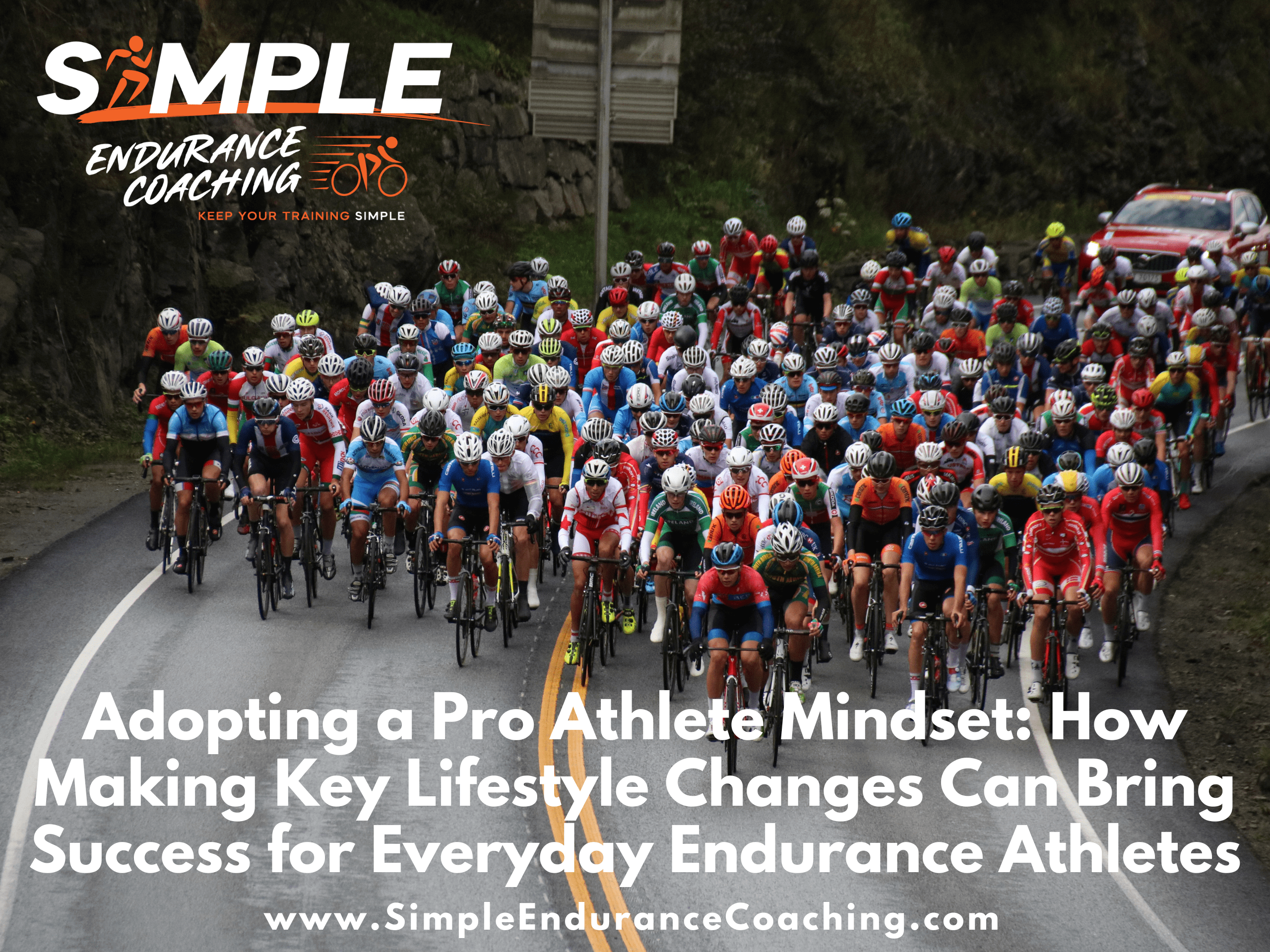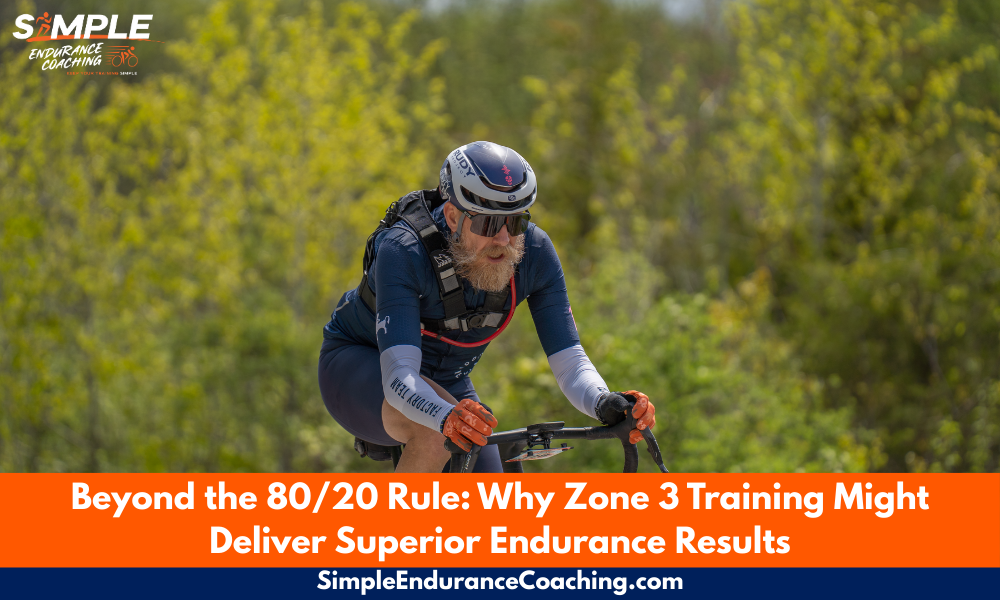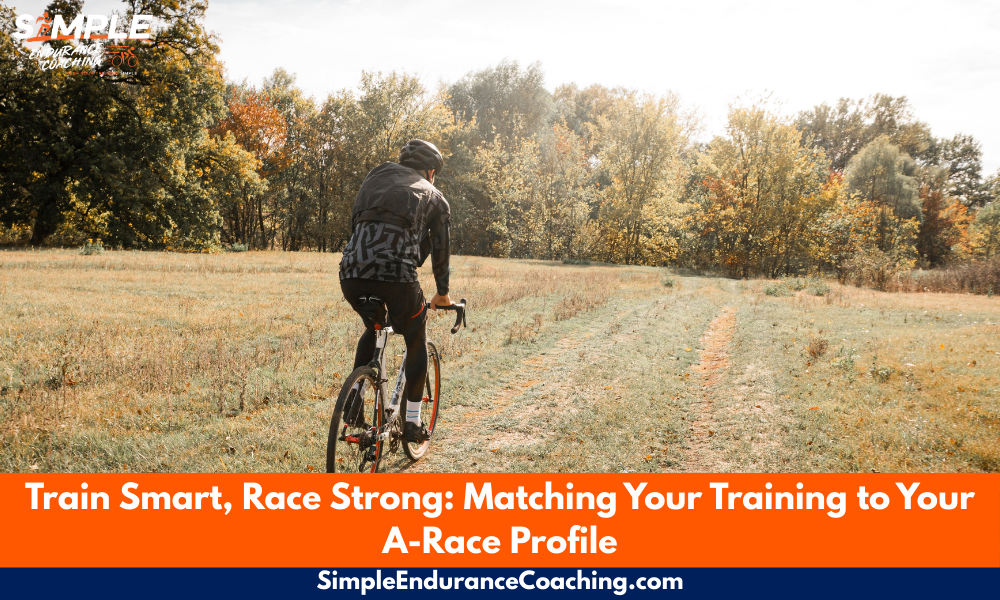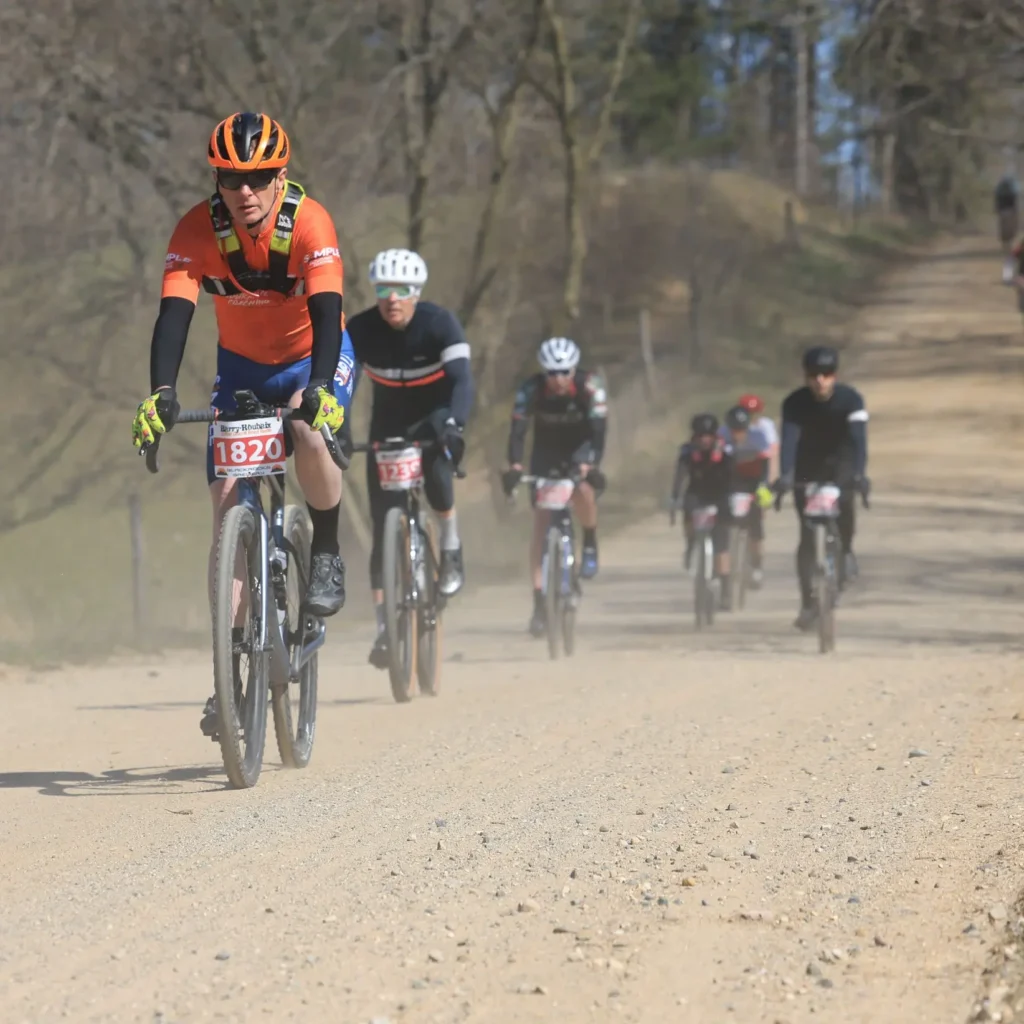One of my junior clients texted me from St. Louis after one of the Gateway Cup crits didn’t go very well.
“I’m actually so done. I’ll do anything to get better. I will not complain, I will do everything this winter.”
The junior had done well in Cat. 4s in the Chicago Grit series, but then slacked off a bit before Gateway and was not happy with the race results.
Now the junior was ready to make some changes.
It was clearly time to adopt many of the same attitudes and habits of pro athletes.
You don’t need to be a pro to have a pro athlete mindset.

Dedication to your endurance sport
Pro athletes, most at least, are singularly dedicated to their sport.
They train, compete, eat well, sleep lots, and do everything possible to optimize their performance.
If you’re going to shoot for big goals as an athlete, you may need to change your lifestyle to support your goals.
And only part of this is actually training!
During several honest conversations, we came up with several ways this athlete could make changes to give themselves the best chance possible to succeed at a high level.
1. Plan your training with consistency.
Base your training plan on your past history.
If I suddenly starting training this junior as a Cat. 2 or elite level cyclist, the rider would soon burn out.
We need to plan out training so that we increase volume and intensity gradually over time and with consistency.
Building up a habit of regular, consistent training with progressive overload is a good way to improve performance.
So we might go from training four days a week to eventually six.
2. Manage training volume
We need to work together to create a plan that progressively increases the volume but not too much.
The junior wanted to make sure they were training over Christmas, so we discussed the need for recovery and down times.
So our training time will increase each week with appropriate recovery so that we are consistent in our training, increase our volume a small percentage each week so make sure we don’t overload the athlete and their body continues to adapt to the training stress.
And we take breaks as needed to make sure the athlete continues to adapt and grow.
We don’t want to start training 20 hours a week when we’ve only been training eight!
3. Learn discipline
This can be a challenge for anyone who wants to improve: Discipline
This comes in our sport and outside.
For example, we need to learn to not do the maximum effort every single time we train.
Our bodies simply can’t handle that much stress.
But this also means learning to eat better, get to sleep on time, and focus on training.
We don’t need to lead monk-ish lives, slavishly devoted to our sports.
But we can learn some dedication to our craft to improve performance.
Part of the discipline might be to still go to the party, but avoid alcohol, and be home in time to get a good night’s sleep.
For my athlete, we’ll race cyclocross only one day a weekend and use the other weekend day for a long training ride.
4. Recover like a pro
Pro athletes prioritize recovery.
Sleep is a key element of recovery because that’s when our body heals itself from the training.
So we need to get eight or more hours a night.
For many of us, that much sleep is tough to get with our busy schedules.
But good sleep, including naps, needs to be a priority for young – and older – athletes.
Same with after workouts: Are you getting good food? Are you resting instead of running around?
5. Eat healthy
This may be one of the most important parts of living the pro life: Improving your eating habits.
The number one thing I tell all of my athletes is to make sure they’re getting enough protein: roughly one gram per pound of bodyweight per day.
It’s a lot, but it helps recovery and builds lean muscle mass needed for their sport.
Getting the right balance of healthy carbohydrates and fats is also key.
This also means avoiding lots of processed foods and sugar as well as alcohol, all of which can hurt your performance and training readiness.
6. Thinking like a pro
If you have big goals in your endurance sport, then you need to adopt a filter: Is x or y going to help me reach my goal?
For instance, is racing every weekend going to help my goal?
For the young athlete I work with, we cut back on cyclocross racing this fall in order to train more.
This athlete also had joined the tennis team as a senior because several friends joined.
The athlete finally decided that while fun, tennis was not going to help their cycling training.
Sometimes, for example, an older athlete might choose to go to a quiet dinner with friends rather than a noisy party.
7. Living by goals
As endurance athletes, we live by our goals.
We want to get on the podium of a local race, for example, or break four hours in the marathon.
But we don’t have much control over whether we reach these outcome goals.
We do have control over the process goals, and how we use them to organize our lives.
We can set goals to optimize food preparation and nutrition.
We set goals to understand the training plan for the week and complete each workout.
The process goals set us up for success so that we have the best possible chance at our outcome goals.
8. Don’t be a slave to the pro lifestyle
While it’s important to do everything you can to live a life that supports your performance goals, you aren’t a pro making a living at the sport.
We still have school or jobs, probably a family, and other responsibilities.
And it’s still important to enjoy our lives.
That means eating a pizza or a small bag of corn chips is okay.
What we can learn from a pro lifestyle is using that filter to do the best we can to optimize our lifestyles for our best performance.
Some days, we won’t get our eight hours of sleep, and that’s okay.
As long as most of your choices reflect your commitment to your sport, you’re on the right path.
Three things to know about living the pro lifestyle
- If you have big goals, you might want to consider how your lifestyle contributes to the goal
- Eating healthy and getting a lot of sleep are two huge factors in the pro life.
- Live the pro life but don’t be a slave to it.
Need more?
Unlock the secrets to mastering gravel racing with our FREE Guide to Gravel Racing! Get yours here.
BOOK A CALL so we can discuss your goals, answer questions, and talk about making your endurance training more effective, fun, and Simple.
Paul Warloski is a:
- USA Cycling Level 1 Advanced Certified Coach
- RRCA Running Coach
- Training Peaks Level 2 Coach
- RYT-200 Yoga Instructor
- Certified Personal Trainer
- Certified Nutrition Advisor




